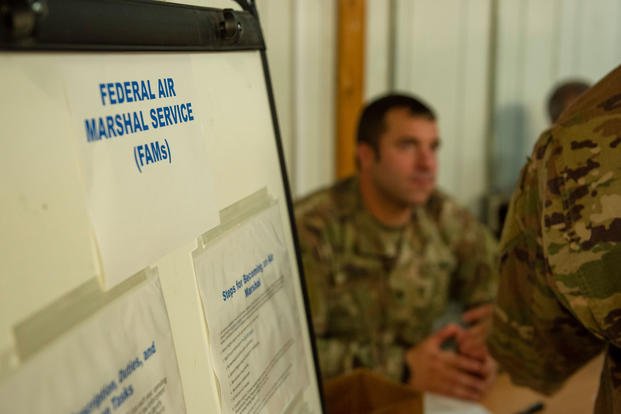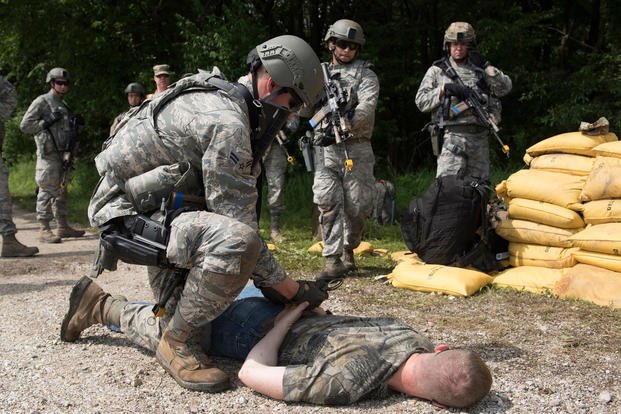Veterans looking for employment often find themselves up against a variety of inaccurate stereotypes. That means they need to be even more prepared for the job hunt than their civilian counterparts.
Knowing how to translate your basic combat course into civilian skills on a resume is only the beginning. Here are a few things that can be learned and accomplished right away to help you make the jump back to civilian life.
6. Look for Companies that Are Looking for You.

Research shows there is no real disadvantage to being a veteran in today's job market. As a matter of fact, many companies are out there looking for military personnel to hire. The problem is that once military members leave their bases for civilian life, they become harder to find. Knowing this, many companies will target service members by actively recruiting on installations or attending job fairs near military bases.
Employers want to get you before you ever get out of the military. You just need to find them. Start the job search well before taking off your uniform for the last time.
5. Learn Patience.

Research shows that a veteran’s difficulty in finding work tapers off gradually over time. This may be the result of simply being available and looking for other work after separating from the military, or it could be because skill mismatches between military and civilian jobs matter less and less as a veteran gains more experience in their civilian field.
Whatever the reason, if you keep pounding the ground for better jobs while working hard to gain skills and experience outside of the military, you will reach your career goals.
4. Master the Job Search Through Networking.
“Schmooze, verb, /SHmo͞oz/ -- to chat in a friendly and persuasive manner especially so as to gain favor, business, or connections.”
It’s also the best way to find a job when you’re preparing for separation.
It’s vitally important to learn how people get jobs and get in the running for them in the most efficient way possible. It doesn’t do you much good to compete in a pool of 5,000 applicants for one job. Instead, talk to people who work in your chosen career. Get to know them. Spend years knowing them. When it comes time to start applying for these gigs, your friends will know who’s hiring and when -- and may be able to help you.
3. Know the Resources at Your Disposal.

Are you aware of the Veterans Employment Center? It’s an online job board and networking site hybrid, designed to bring together military personnel with potential employers. As more veterans register for the VEC, more companies will come to it looking for you. It also helps translate those skills you picked up in the military to the civilian workforce. Register for everything.
And it isn’t the only employment resource available to military personnel and veterans. The Department of Labor has its own veterans portal, as do some veterans service organizations and many states, like Texas. Be sure to check out your own base for job fairs and resume help. If there isn’t a job fair on the horizon, push your base to host one and facilitate access to civilian employers.
2. Know Where to Target.

This should be a pretty simple concept for the military types, right? It makes sense to focus on a target and then prepare to assault that target with the weapons you need. There are organizations that love to hire veterans or offer preference to veterans, especially for federal government jobs, where you can have five- or 10-point preference over other applicants. You can even apply for a federal job while still serving in the military.
Related: Search for Veteran Jobs
Look at the companies you want to work for and find out about their veteran hiring programs and policies. Even if there’s a negligible advantage to being a vet, you can still find out about the skills and requirements you’ll need. For example, if your dream job at Skunkworks requires a top secret clearance, you’ll know to have a current one when you get out.
1. Learn to Translate Your Military Skills to Civilian Life.

You didn’t spend 4-8 years working on aircraft or on the decks of a destroyer just to get an entry-level job doing the same thing in the civilian world. But if you are going for an entry-level position in your first post-military job, know that just being a vet will not guarantee you any job. Make sure you get licensed and certified in every way you can. Education and training add up when you’re making your way outside the military.
Still, to make these connections between two worlds, you’re going to need to be a writer and describe these skills well. For example: You learned dependability in basic training, on top of teamwork building and interpersonal skills. While you were in, you learned to be the perfect professional in any given situation.
In later noncommissioned officer training, you learned things like leadership, training and project planning. All of these are essential elements for your resume. Your ability to handle stress and operate with a cool head under hard conditions makes you not only a good employee, but a leader as well.
There are a couple of infographics out there for this purpose.
Just know what you bring to the table and don’t be afraid to say it.
Find the Right Veteran Job
Whether you want to polish your resume, find veteran job fairs in your area or connect with employers looking to hire veterans, Military.com can help. Sign up for a free Military.com membership to have job postings, guides and advice, and more delivered directly to your inbox.
















